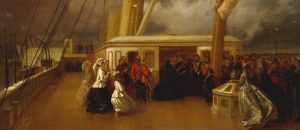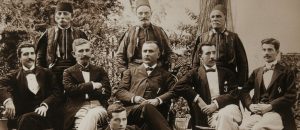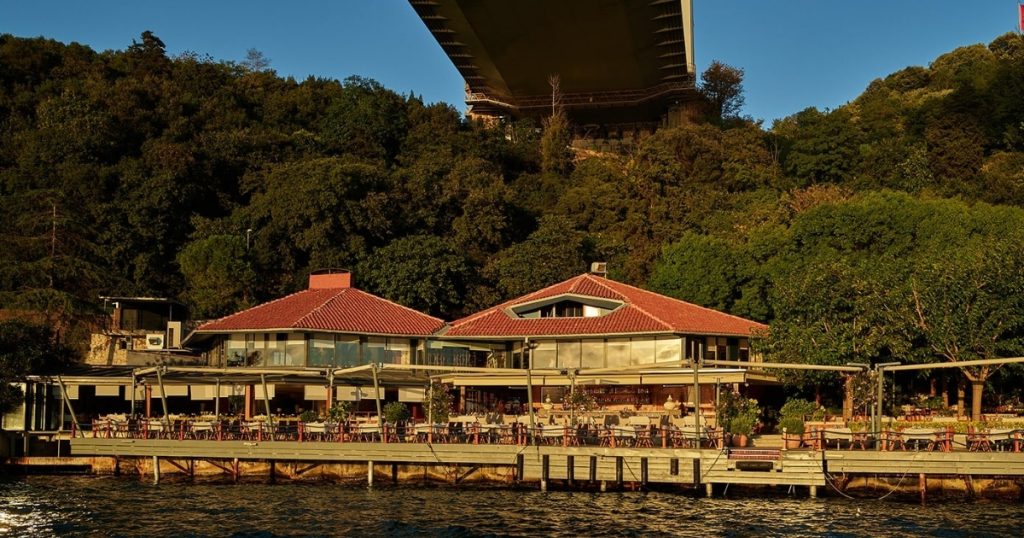In the mid-19th century, during a period when the Ottoman Empire was known as the “Sick Man of Europe,” and military defeats and territorial losses were on the rise, Grand Vizier Ali Pasha and Minister of Foreign Affairs Fuad Pasha emerged as the last great Ottoman diplomats who won back with the pen what was lost by the sword. Through their masterful negotiations in the political capitals of Europe, such as Paris and London, following the Crimean War, these two brilliant statesmen succeeded in preserving the empire’s territorial integrity and international prestige. Their art of diplomacy is the brightest proof of how reason, patience, and strategy can become the most effective weapons in an age where military power falls short.
Politics and diplomacy in the Dolmahçe era ->
Reviving the “Sick Man” at the Table: The Crimean War and Its Aftermath
The Crimean War (1853-1856) was the last major military victory the Ottoman Empire won, in alliance with Britain and France against Russia. However, although this victory was won on the battlefield, the real struggle was to be fought at the peace conference to be held in Paris after the war. It was vital to halt Russia’s ambitions in the Balkans and the Black Sea and to ensure the Ottoman Empire was recognized as an equal member of the European concert of powers. This critical task was assigned to Grand Vizier Âli Pasha, the head of the Ottoman delegation at the conference.
Beyond the Grand Narrative
You have seen the stage of an empire in transformation. Now, it is time to meet the actors. The Dolmabahçe Journal goes beyond the timeline, into the personal ambitions, political intrigues, and cultural revolutions that defined the era. Discover the individual stories behind the grand history.
DISCOVER THE ERA OF TRANSFORMATION →
The Paris (1856) and London (1871) Conferences: Diplomatic Chess
Âli Pasha and his closest colleague, Fuad Pasha, acted like chess masters against the veteran politicians of European diplomacy. Their strategy was based not on military strength, but on the principles of “Europe’s common interests” and the “balance of power.”
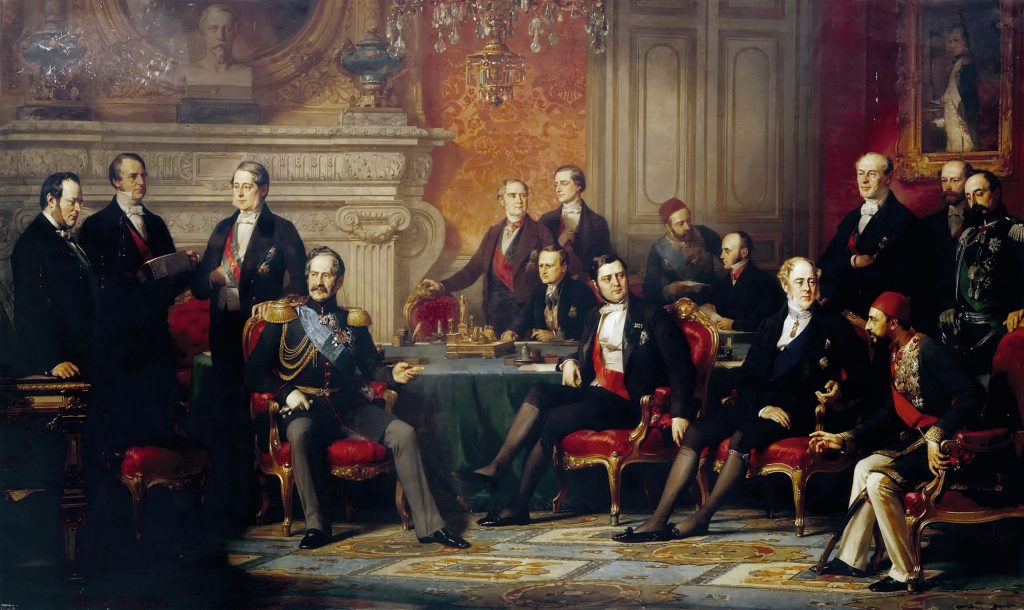
- Using the European Balance of Power: Âli and Fuad Pashas knew that an overly powerful Russia would discomfort Britain and Austria. By skillfully using the rivalry and conflicts of interest among these states, they managed to draw them to their side on the issue of protecting Ottoman territorial integrity. They constantly kept the message on the table: “Our weakening means Russia’s strengthening and the endangerment of your security.”
- The Reform Edict (1856) as a Trump Card: The Reform Edict, proclaimed by Sultan Abdülmecid just before the Paris Conference, was the most important trump card in this diplomatic game. The edict granted non-Muslim subjects of the empire equal rights with Muslims. Âli Pasha used this edict to send a message to the European powers: “Look, we are a modernizing, liberal, and civilized state just like you. Therefore, there is no need for you to interfere in our internal affairs.” This move stripped Russia of its pretext to interfere in Ottoman domestic affairs under the guise of “protecting Orthodox Christians.”
- Personal Charisma and Intellectual Superiority: Both pashas commanded great respect from their European counterparts with their fluent French, mastery of Western culture, and sharp intellects. They were rational and modern statesmen who shattered the “exotic and backward” Ottoman image in the Western mind. This personal prestige gave them a significant advantage in negotiations.
Thanks to these strategies, the territorial integrity of the Ottoman Empire was guaranteed by the European powers in the 1856 Treaty of Paris, and the Black Sea was made a neutral sea, temporarily warding off the Russian threat. This was the greatest diplomatic victory the “Sick Man” won at the table. Similarly, at the London Conference of 1871, Âli Pasha again managed to limit Russia’s desire to re-establish a navy in the Black Sea through diplomatic maneuvers.
The Pen is Mightier Than the Sword
The successes of Âli Pasha and Fuad Pasha in the field of diplomacy were also one of the most important reasons for [Link: their strengthening of the Bâb-ı Âli against the palace -> /padisahin-kulu-degil-devletin-mimari-dolmahçe-doneminde-sadrazamlik-nasil-saraydan-guclu-hale-geldi]. These victories in foreign policy earned them great legitimacy and power in domestic politics against the Sultan and the conservative opposition. They represented the last “state reason” of the Ottomans. However, their successive deaths in 1871 marked the end of this reason, and in their absence, the empire would suffer major diplomatic defeats, such as at the 1878 Congress of Berlin.
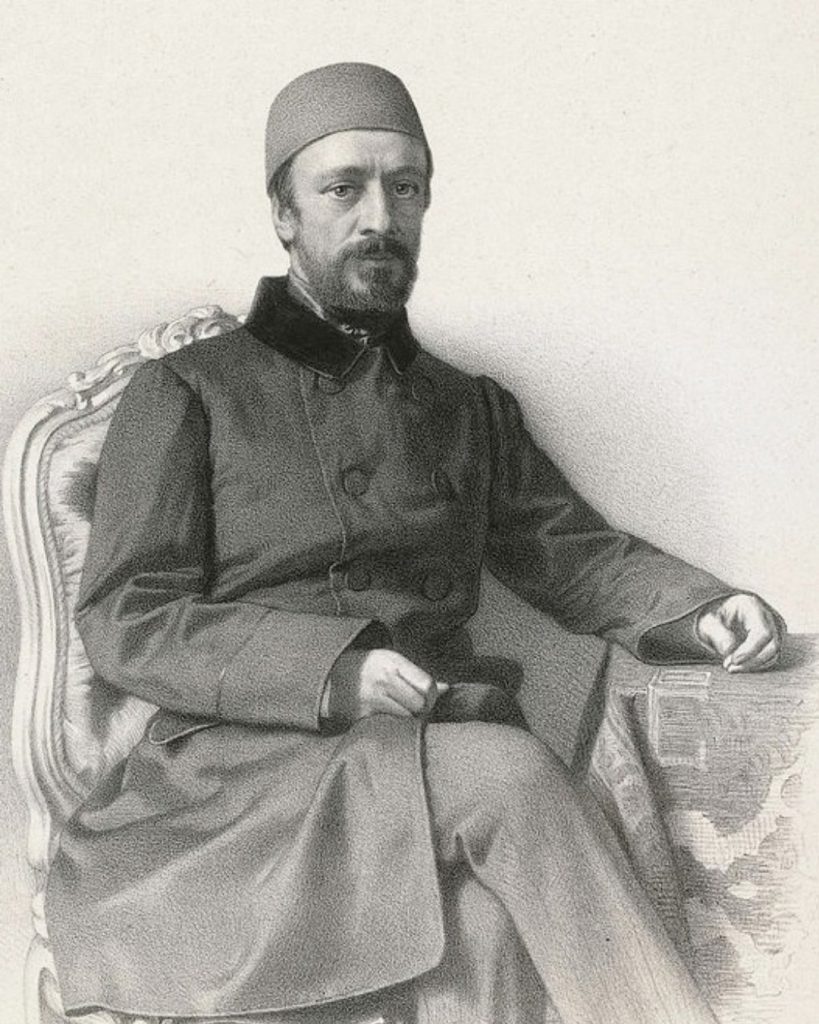
In conclusion, Âli Pasha and Fuad Pasha were the last great diplomats who defended the empire’s interests with their pens and intellects during a period of weakening military power. The victories they won at the negotiating tables in Paris and London extended the life of the Ottoman Empire by at least twenty years and ensured that the “Sick Man” remained an honorable member of the international system. Their story is the most striking proof that diplomacy can be as vital and devastating as war, and that sometimes, the pen is mightier than the sword.
The Archives Await
The story you’ve just read is a single thread in a rich historical tapestry. The Dolmabahçe Journal holds countless other narratives of art, power, and transformation waiting to be discovered.
READ MORE FROM THE JOURNAL →










